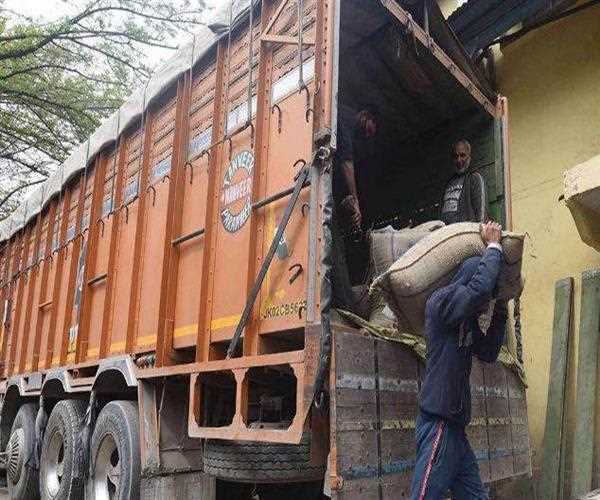
16-May-2020
Food Crisis For Sure In Corona Pandemic
Indeed, even before the pandemic, there were signs that worldwide food costs could before long flood. Outrageous climate occasions actuated by environmental change have gotten progressively normal.
African pig fever cleared out more than one-fourth of the world's pig populace a year ago, causing food costs in China to increment by 15-22% year on year so far in 2020. Also, more as of late, the most noticeably awful grasshopper curse in 70 years has demolished harvests in East Africa. In Kenya, the cost of maize, a staple food, has ascended by over 60% since 2019.
COVID-19 is enhancing the danger of an overall food-value spike, which would trigger out and out emergencies in many creating nations. In the least fortunate of these, food represents 40-60% of the utilization bin, around 5-6 times its offer in cutting edge economies.
While lockdowns have prompted a breakdown sought after for sturdy merchandise and optional administrations, the inverse is valid for food. In urban communities around the globe, reports of frenzy purchasing and food storing have multiplied since the pandemic started.
On the flexibly side, worldwide grain stores are solid yet could rapidly be drained as the infection upsets food creation and dispersion. What's more, deficiencies of animal feed, manures, and pesticides have expanded both the expenses of cultivating and the danger of awful reaps.
In addition, from reaping products of the soil in India to working meat plants in America, work deficiencies are getting progressively obvious as cross-fringe travel limitations in a significant part of the world upset the typical regular pattern of transient ranch laborers. Furthermore, transportation deficiencies are making it additionally testing to get produce to showcase – when there is one.
Ranchers need to reconfigure their flexibly chains from mass discount to (as of now shut) eateries, lodgings, and schools, and toward supermarkets and home conveyance. Yet, that requires some investment, not least since business and customer food items are arranged and bundled in an unexpected way. Meanwhile, new produce has must be obliterated.
Such food protectionism may appear to be a decent method to give alleviation to the most defenseless fragments of the populace, however synchronous mediations by numerous legislatures can bring about a worldwide food-value flood, as occurred in 2010-11. The World Bank assesses that protectionism represented about 40% of the expansion in the worldwide cost of wheat and 25% of the ascent in maize costs around then.
READ HERE MORE : WTO Is Half-Dead In This Corona Pandemic
One can comprehend these nations' anxiety. While the COVID-19 pandemic has prompted falling development, rising joblessness, extending financial shortfalls, and taking off obligation in cutting edge and rising economies the same, the presence of new disease hotbeds in creating nations will mean a considerably starker tradeoff between sparing lives and ensuring jobs.
Besides, creating nations are now confronting an unexpected stop in capital and settlement inflows and a breakdown in the travel industry, while the terms of exchange and monetary forms of the many oil and essential product exporters among them are slamming. Indeed, even before COVID-19, some low-salary nations were at genuine danger of obligation trouble. Furthermore, a significant number of these economies are likewise profoundly powerless against a spike in food costs.
Nomura's Food Vulnerability Index positions 110 nations dependent on their introduction to huge food-value swings, considering their ostensible GDP per capita, the portion of food in family unit utilization, and net food imports. The most recent perusing shows that of the 50 nations generally defenseless against a supported ascent in food costs, almost all are creating economies that represent about three-fifths of the total populace.
Indeed, flooding food costs would be a worldwide issue, since they are exceptionally backward all over the place. Indeed, even in created economies, a hop in food costs would drive a greater wedge between the rich and poor, intensifying effectively serious riches imbalance. Nobody ought to disregard the deep rooted association between food emergencies and social agitation.
Multilateral establishments have activated rapidly during the emergency to give crisis advances to a record number of creating nations, while G20 leasers have consented to a brief suspension of obligation administration installments from poor nations that demand restraint. But since the dangers presented by flooding food costs don't have any significant bearing just to the most helpless economies, brief obligation alleviation may should be reached out to different nations also.
With the pandemic taking steps to unleash considerably increasingly financial ruin, governments must cooperate to address the danger of interruptions to food flexibly chains. All the more comprehensively, some small amount of worldwide arrangement coordination is fundamental to keep food protectionism from turning into the post-pandemic new typical.

Content Writer/Journalist
I am a content writter !
Join Our Newsletter
Subscribe to our newsletter to receive emails about new views posts, releases and updates.
Copyright 2010 - 2026 MindStick Software Pvt. Ltd. All Rights Reserved Privacy Policy | Terms & Conditions | Cookie Policy